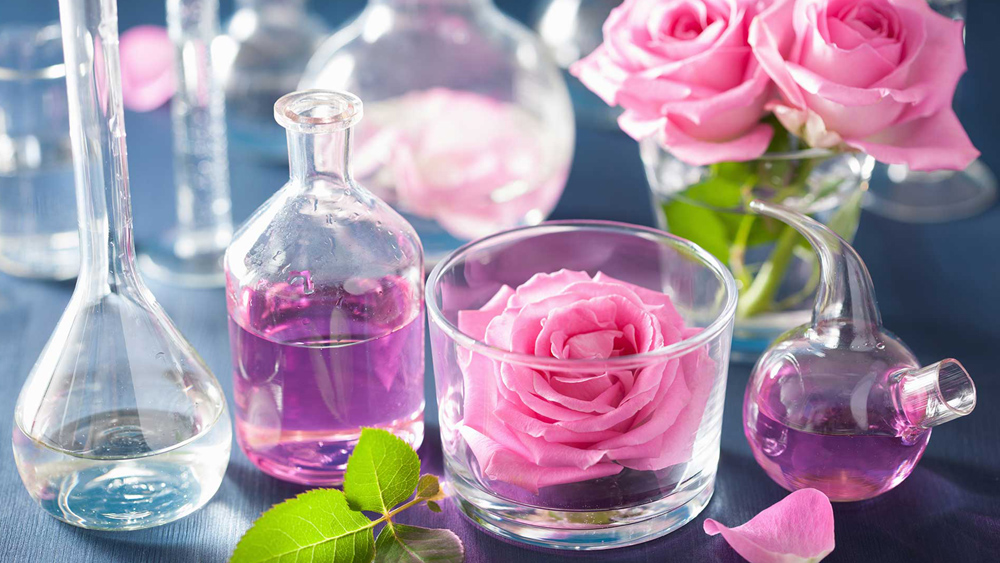Aromatherapy, or fragrance therapy, refers to the use of essential plant oils to improve physical and mental health. This therapeutic method is recognized as a branch of complementary and alternative medicine and can help relieve stress, improve mood, and treat certain physical issues. Here, we will comprehensively discuss the foundations, properties, methods of use, and scientific research related to aromatherapy.
- Essential Oils
Essential oils are natural compounds extracted from various parts of plants (such as leaves, flowers, roots, and fruits). These oils are rich in active chemical compounds that have diverse therapeutic properties. Below is a description of some commonly used essential oils and their properties:
- Lavender:
- Properties: Calming, anti-anxiety, aids sleep.
- Use: Can be used in diffusers or applied topically (after dilution).
- Peppermint:
- Properties: Relieves headaches, boosts energy and focus, aids digestive issues.
- Use: Can be applied topically to painful areas or used in a diffuser.
- Tea Tree:
- Properties: Antiseptic, effective in treating skin issues like acne and fungal infections.
- Use: Typically used topically and diluted.
- Rosemary:
- Properties: Memory booster, pain reliever for muscles, increases focus.
- Use: Can be used in diffusers or applied topically.
- Citrus (such as lemon and orange):
- Properties: Mood and energy booster, anti-depressant effects.
- Use: Commonly used in diffusers or as inhalation.
- Chamomile:
- Properties: Calming, aids sleep, reduces anxiety.
- Use: Can be used as tea or in a diffuser.
- Ginger:
- Properties: Pain reliever, aids digestive issues.
- Use: Usually applied topically or in combination with carrier oils.
- Methods of Use
Aromatherapy can be implemented in various ways:
- Inhalation: One of the simplest methods of aromatherapy. Essential oils can be inhaled through diffusers, steam, or direct inhalation.
- Massage: Essential oils are typically blended with carrier oils (such as almond or coconut oil) and used in massage. This method can help relieve muscle pain and enhance relaxation.
- Bathing: Adding a few drops of essential oil to warm bath water can help relieve tension and stress.
- Compress: Using warm or cold compresses with essential oils can help alleviate pain and inflammation in specific areas of the body.
- Therapeutic Properties
The properties of aromatherapy depend on the chemical compounds present in the essential oils. These compounds can have various effects on the nervous system, immune system, and endocrine system. Some positive effects of aromatherapy include:
- Reducing anxiety and stress: Studies have shown that essential oils like lavender can help lower stress and anxiety levels.
- Improving sleep quality: Using calming oils can help enhance sleep quality and reduce sleep issues.
- Relieving pain: Oils like peppermint and rosemary can be effective in relieving muscle pain and headaches.
- Strengthening the immune system: Some essential oils have antiseptic and antimicrobial properties and can help boost the immune system.
- Scientific Research
Numerous scientific studies have been conducted on aromatherapy, showing positive results:
- Clinical Studies: Research has shown that aromatherapy can be an effective complementary treatment in managing anxiety and depression. For instance, a study indicated that using lavender oil in hospitalized patients could significantly improve their anxiety levels.
- Research on Sleep Quality: A study found that inhaling lavender oil before sleep could help improve sleep quality in individuals suffering from insomnia.
- Physiological Effects: Some research has indicated that aromatherapy can positively influence physiological responses such as blood pressure and heart rate.
- Precautions and Important Notes
- Dilution: Essential oils should be diluted before topical application to prevent allergic reactions.
- Sensitivity Testing: Conduct a sensitivity test on the skin before use.
- Consultation with a Specialist: Consultation with a physician is essential in cases of pregnancy, breastfeeding, or specific medical conditions.





